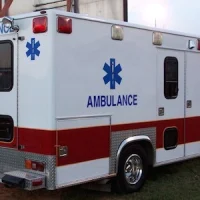A retrospective study of a small group of patients treated with therapeutic hypothermia after cardiac arrest found a high prevalence of delirium.
The researchers reviewed the medical charts of patients treated in the cardiovascular intensive care unit (ICU) at Vanderbilt University Medical Center, Nashville, Tennessee, USA. Of 107 patients who survived and awoke from coma all experienced at least one day of delirium between rewarming and being discharged from the ICU. The study also investigated risk factors for delirium.
Jeremy Pollock, MD, fellow in the division of cardiovascular medicine at the University of Maryland Medical Center, Baltimore, said that this high prevalence shows the need for a better understanding of the relationship between delirium and long-term outcomes.
See Also: Earplugs Are Effective in Reducing Risk of Delirium
The researchers found that in the patient group studied age and longer times from initiation of CPR to return of spontaneous circulation were associated with increased duration of delirium. After resuscitation risk factors were doses of propofol, with higher total doses of propofol while comatose being protective against delirium. They suggest that the degree of injury induced by cardiac arrest, the swings in metabolism from therapeutic hypothermia and the psychoactive medication doses were likely contributory factors to delirium.
The researchers recommend further research to understand the relationship between sedative and paralytic choice during therapeutic hypothermia and prevalence and duration of delirium, as well as the relationship between delirium, sedation and long-term outcomes in patients treated with therapeutic hypothermia after cardiac arrest.
The researchers reviewed the medical charts of patients treated in the cardiovascular intensive care unit (ICU) at Vanderbilt University Medical Center, Nashville, Tennessee, USA. Of 107 patients who survived and awoke from coma all experienced at least one day of delirium between rewarming and being discharged from the ICU. The study also investigated risk factors for delirium.
Jeremy Pollock, MD, fellow in the division of cardiovascular medicine at the University of Maryland Medical Center, Baltimore, said that this high prevalence shows the need for a better understanding of the relationship between delirium and long-term outcomes.
See Also: Earplugs Are Effective in Reducing Risk of Delirium
The researchers found that in the patient group studied age and longer times from initiation of CPR to return of spontaneous circulation were associated with increased duration of delirium. After resuscitation risk factors were doses of propofol, with higher total doses of propofol while comatose being protective against delirium. They suggest that the degree of injury induced by cardiac arrest, the swings in metabolism from therapeutic hypothermia and the psychoactive medication doses were likely contributory factors to delirium.
The researchers recommend further research to understand the relationship between sedative and paralytic choice during therapeutic hypothermia and prevalence and duration of delirium, as well as the relationship between delirium, sedation and long-term outcomes in patients treated with therapeutic hypothermia after cardiac arrest.
References:
Pollock JS, Hollenbeck RD, Wang L, Holmes B, Young MN, Peters M, Ely W, McPherson JA, Vasilevskis EE (2016) Delirium in survivors of cardiac arrest treated with mild therapeutic hypothermia. Am J Crit Care, 25(4):e81-9. doi: 10.4037/ajcc2016581.
Latest Articles
delirium after mild therapeutic hypothermia, delirium after cardiac arrest, ICU
A retrospective study of a small group of patients treated with therapeutic hypothermia after cardiac arrest found a high prevalence of delirium. The researchers reviewed the medical charts of patients treated in the cardiovascular intensive care unit at










